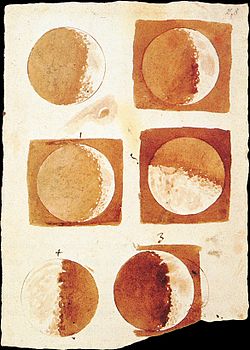User:Annatto/Sandbox/Monday

Monday (pron. /ˈmʌndeɪ, ˈmʌndi/) is the day of the week between Sunday and Tuesday.
Origins of the name
[edit]It gets its name from the Moon, which in turn gets its name from Mani (Old English Mona), the Germanic Moon god. Similarly, the names in Latin-based languages such as the Italian name (Lunedì), the French name (lundi), the Spanish name (lunes), and the Romanian name (Luni) come from the Latin name for Moon, luna. The Russian word, eschewing pagan names, is понедельник (poniediélnik), meaning "after Sunday." In most of the Indian Languages, the word for Monday is Somvar, with Soma being the Sanskrit name for the moon. The Japanese word for Monday is getsuyōbi (月曜日) which means day of the moon.
See here and here for a more comprehensive explanation.
Position in the week
[edit]In many cultures, Monday is held to be the first day of the week. This is the case in most of Europe, parts of Africa, South America and Australia. In Asia – because the western calendar system was introduced only during the 20th century – many languages refer to Monday as the "day of the beginning". For example, Monday is xingqi yi (星期一) in Chinese, meaning day one of the week. The international standard, ISO 8601, defines Monday as the first day of the week.
But according to the Judeo-Christian count, Monday is the second day, the first being Sunday. This is also the standard format in Canada and the United States. Its name in Arabic, Armenian, Georgian, Greek, Hebrew, Persian, Portuguese and Syriac means "second day". Quakers also traditionally refer to Monday as "Second Day" eschewing the pagan origin of the English name "Monday". For similar reasons the official liturgical calendar of the Roman Catholic Church refers to Monday as "Feria II". (The Portuguese name for Monday reflects this, as do all the days' names except Saturday and Sunday: the Portuguese word for Monday is segunda-feira.)
Modern culture usually looks at Monday as the beginning of the workweek, as it is typically Monday when adults go back to work and children back to school after the weekend. Thus, Mondays are often seen as a misfortune. In Middle Eastern countries, however, the beginning of the workweek is usually Saturday (Thursday and Friday are observed as the weekend). In Israel, Sunday is the first day of the workweek. Friday is half a work day and Friday night and Saturday are the Sabbath.
Religious observances
[edit]In Judaism and Islam Mondays are considered auspicious days for fasting. The Didache warned early Christians not to fast on Mondays to avoid Judaizing, and suggests Wednesdays instead.
In Judaism the Torah is read in public on Monday mornings, and special penitential prayers are said on Monday, unless there is a special occasion for happiness which cancels them.
In the Eastern Orthodox Church Mondays are days on which the Angels are commemorated. The Octoechos contains hymns on this theme, arranged in an eight-week cycle, that are chanted on Mondays throughout the year. At the end of Divine Services on Monday, the dismissal begins with the words: "May Christ our True God, through the intercessions of his most-pure Mother, of the honorable, Bodiless Powers (i.e., the angels) of Heaven…". In many Eastern monasteries Mondays are observed as fast days; because Mondays are dedicated to the angels, and monks strive to live an angelic life. In these monasteries the monks abstain from meat, foul, dairy products, fish, wine and oil (if a feast day occcurs on a Monday, fish, wine and oil may be allowed, depending upon the particular feast).
Cultural references
[edit]
In the folk rhyme, "Monday's child is fair of face".
In Thailand, the color associated with Monday is yellow, see Thai solar calendar
Common occurences
[edit]This section needs expansion. You can help by adding to it. (April 2008) |
Astrology
[edit]This section needs expansion. You can help by adding to it. (April 2008) |
Named days
[edit]- Big Monday
- Black Monday
- Blue Monday
- Clean Monday (Ash Monday)
- Cyber Monday
- Easter Monday also Bright Monday or Wet Monday
- First Monday
- Handsel Monday
- Miracle Monday
- Plough Monday
- Shrove Monday
- Weather Market Monday. The day when commodity markets add or subtract weather premium.
- Wet Monday
- Whit Monday
